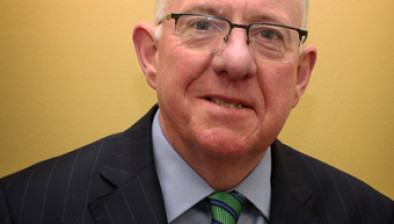Irish government urged to campaign for EU-wide rape law

Rachel Morrogh
The Irish government should campaign to have a consent-based definition of rape included in a new EU directive on violence against women, Dublin Rape Crisis Centre (DRCC) has said.
Frances Fitzgerald, the former justice minister and current Fine Gael MEP, said last year that some EU member states are reluctant to include a definition of rape in the proposed directive.
She told The Irish Times that some member states have presented “strong” legal advice suggesting that establishing an EU-wide definition of rape would be “an overreach”.
As it currently stands, the proposed directive will criminalise female genital mutilation and “cyber violence”, meaning non-consensual sharing of intimate images, cyber stalking, cyber harassment and cyber incitement to violence or hatred.
Rachel Morrogh, CEO of DRCC, said: “Ireland has relatively progressive laws on sexual violence and our leaders must continue to use their influence in Europe to convince other member states that a consent-based definition of rape will benefit their citizens too.
“We believe that legal opinions have been used as a rationale to suggest removing important wording related to rape, but we strongly urge member states to show courage and conviction in the face of any objections to progress on tackling sexual violence.
“As a structure that prizes equality and security for all, the EU must find a solution that does not dilute the definition of rape as a serious crime based on lack of consent. Ireland has a key role in advocating for and achieving this goal, and DRCC will support our politicians and officials in whatever way we can to accomplish it.
“We will be failing the huge number of people in Europe harmed by sexual violence, especially women and children as those most vulnerable and most impacted, if we do not include a definition of rape in this ground-breaking directive.”
She added: “DRCC would also like to acknowledge the key role played by Frances Fitzgerald MEP as a lead negotiator of the wording put forward by the European Parliament. We thank her sincerely for all her work in this regard.”











